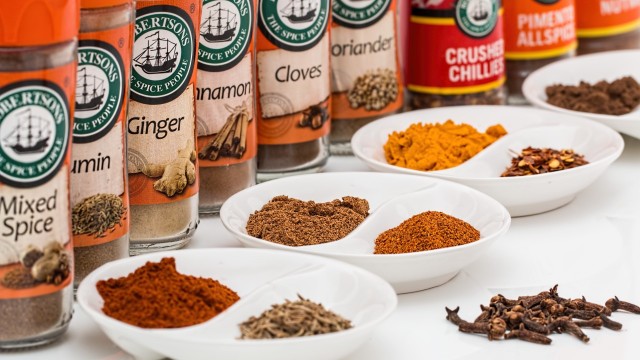The Health Benefits of Turmeric and Curcumin

What is turmeric?
Turmeric has been in use in India for several years as a medicinal herb and a spice. It is the spice that makes curry take a yellow color. The health benefits of turmeric cannot be overemphasized.
Turmeric has numerous health benefits for the body and the brain. It is arguably the most effective nutritional supplement in existence. Many studies provide evidence on the health benefits of turmeric which help improve good health and wellbeing.
Here are the health benefits of turmeric:
1. Turmeric has medicinal, bioactive compounds
Research has corroborated Indians’ belief about the health benefits of turmeric. For example, there is evidence that it contains medicinal compounds known as curcuminoids (1). The curcumin is the most important of the curcuminoids with medicinal properties.
As the main active ingredient in turmeric, curcumin is a strong antioxidant and an anti-inflammatory substance. However, turmeric’s curcumin content is about 3% by weight (2). So it is not high.
Several studies examined the health benefits of turmeric with positive findings.
Most studies used turmeric extracts containing mostly curcumin with dosages that exceeded 1 gram per day. However, the turmeric spice in your foods cannot reach these levels.
Therefore, to experience the full effects, you need to take a curcumin rich supplement. It is important to consume black pepper with curcumin because curcumin is poorly absorbed into the bloodstream. Black pepper
contains piperine, a natural substance that increases curcumin absorption by 2000% (3).
Curcumin is a fat soluble curcuminoid and so can be taken with a fatty meal. Finally, the piperine-containing curcumin supplements are highly effective with powerful anti-inflammatory and antioxidant properties.
2. Curcumin contains anti-inflammatory properties
An inflammation is an important process that helps the body fight foreign invaders. Inflammation also has a role to repair damage.
Inflammation helps your body ward off pathogens like bacteria. So, without inflammation pathogens could overwhelm and kill you.
Acute, short-term inflammation is beneficial. However, it becomes problematic when it persists over time (becomes chronic) and attacks body’s tissues.
Research shows that low-level, chronic inflammation plays an important role in chronic diseases. They include but not limited to cancer, heart disease, various degenerative conditions and Alzheimer’s disease (4, 5, 6).
So, anything helping to fight chronic inflammation is potentially important in the prevention and treatment of these diseases.
Curcumin is anti-inflammatory and powerful. In fact, it is as effective as some anti-inflammatory drugs (7, 8, 9). This is another important health benefit of turmeric.
Curcumin blocks NF-kB. NF-kB is a molecule that moves into the cells’ nuclei and switches on genes associated with inflammation. Also, NF-kB plays an important role in chronic diseases (10,11).
In conclusion, curcumin is a bioactive, anti-inflammatory substance that works at the molecular level (12,13, 14).
3. Turmeric contains antioxidant properties
One of the health benefits of turmeric is its antioxidant property. It is a known fact that aging and many diseases occur in part as a result of oxidative damage. It involves highly reactive molecules with unpaired electrons known as the free radicals. Free radicals react with DNA, proteins and fatty acids.
Antioxidants help protect the body from free radicals. As a potent antioxidant, curcumin, by virtue of its chemical structure, helps to neutralize free radicals (15, 16). Additionally, curcumin improves the function of antioxidant enzymes in your body (17, 18, 19).
Curcumin is so powerful that it delivers a lethal blow against free radicals. In fact, it blocks them directly and also stimulates your body’s antioxidant defense mechanism.
4. Curcumin improves brain function and lowers risk of brain diseases
Neurons are capable of dividing and multiplying. In fact, they form new connections and increase in number in certain areas of the brain. Brain-derived neurotrophic factor (BDNF) is one of the main drivers of this process.
BDNF is a type of growth hormone that works in the brain (20). Alzheimer’s disease, depression and many brain disorders are linked to low levels of this hormone (21, 22).
Curcumin can increase the brain levels of BDNF and therefore delay or reverse age-related decreases in brain function (23, 24). In addition, it delays or reverses many brain diseases (25).
Further, curcumin helps improve memory due mainly to its effects on BDNF levels. Therefore, it may make you smarter. However, there is need for controlled studies to confirm this (26).
5. Curcumin helps reduce risk of heart disease
The number 1 cause of death in the world is heart disease (27). A lot has been learnt about heart disease including why and how it happens. Various factors contribute to it making it incredibly complicated.
Curcumin reverses some steps in the developmental process of the heart disease (28). Also and more importantly, it helps improve the function of the endothelium, a lining of your blood vessels.
Endothelial dysfunction is the inability of your endothelium to regulate blood pressure and blood clotting factors. It is a well-known driver of heart disease (29).
Studies have shown that curcumin helps improve endothelial function. A study found it works as well as exercise while another found it’s as effective as the drug Atorvastatin (30, 31).
As discussed above, curcumin reduces oxidation and inflammation which invariably play a role in heart disease.
A study randomly assigned either a placebo or 4 grams of curcumin per day to 121 people undergoing coronary artery bypass surgery, a few days before and after the surgery. Results showed that the curcumin group a 65%
decrease in the risk of having a heart attack in the hospital (32).
6. Turmeric helps prevent cancer
Cancer is a disease characterized by cell growth that cannot be controlled. Many forms of cancer exist. These different forms of cancer also have many things in common such as being affected by curcumin supplements (33).
Studies have shown that curcumin is a medicinal herb used for the treatment of cancer. At the molecular level, curcumin interferes with cancer development, growth and spread (34).
Also, studies show that curcumin causes the death of cancerous cells. Additionally, it reduces the growth of new blood vessels in tumors and spread of cancer (35).
Further, studies show that curcumin can slow cancerous cells’ growth in the laboratory and prevent the growth of tumors in test animals (36, 37).
Evidence exists of curcumin preventing cancers especially cancers of the digestive system like colorectal cancer from occurring.
However, no proper study has yet examined whether high-dose curcumin with piperine can treat cancer in humans.
A study of 44 men with colonic lesions that sometimes turn cancerous was done over 30 days. Findings showed reduced number of lesions by 40% having taken 4 grams of curcumin per day (38).
Perhaps, conventional cancer treatment may be used along with curcumin someday. This looks promising and is being studied intensively.
7. Curcumin helps in the prevention and treatment of Alzheimer’s disease
Alzheimer’s disease is the world’s leading cause of dementia and the most common neurodegenerative disease. Unfortunately, there is no good treatment yet for Alzheimer’s disease.
Therefore, prevention of Alzheimer’s disease should be the ultimate goal. The good news is a proof that curcumin crosses the blood-brain barrier (39).
Recall that inflammation and oxidative damage play an important role in Alzheimer’s disease. Therefore, curcumin which has anti-inflammatory and antioxidant properties, invariably exerts beneficial effects on Alzheimer’s (40).
Additionally, studies show that curcumin helps remove amyloid plaques. These plaques are a key feature of Alzheimer’s disease. In fact, there
is a buildup of amyloid plaques in Alzheimer’s (41).
To conclude, there is need for proper studies to find out whether curcumin can really reverse or slow progression of Alzheimer’s in humans.
8. Curcumin supplements help relieve arthritis symptoms
Arthritis is common worldwide and there are different types, most of which include inflamed joints.
Curcumin may help with arthritis given that it is a powerful anti-inflammatory compound. Many studies corroborate this fact.
For example, a study of people with rheumatoid arthritis showed that curcumin was more effective than an anti-inflammatory drug (42).
Many studies have noted improvements in various symptoms of arthritis with the intake of curcumin supplements (43,44).

9. Curcumin is effective in treating depression
Curcumin may help with depression. A controlled trial was done with 60 people with depression. They randomized into three groups with one group taking Prozac, and another group, 1 gram of curcumin. The third group
took bot the Prozac and curcumin (45).
Curcumin led to improvements similar to the effects of Prozac after 6 weeks. The group that took both curcumin and Prozac had the best outcome (45). This study proved that curcumin is as effective as an antidepressant.
Depression is associated with reduced levels of brain-derived neurotrophic factor (BDNF). It is also linked to a declining hippocampus, an area in the brain responsible for learning and memory.
Recall that curcumin increases levels of BDNF. Therefore, it has the potential to reverse some of these depression-related changes (46).
Evidence shows that curcumin can boost the brain neurotransmitters including dopamine and serotonin (47, 48).
10. Curcumin helps fight age-related chronic diseases and delay aging
An interesting health benefit of turmeric and curcumin is that they have great potential for prolonging life. It can help prevent heart disease, Alzheimer’s disease and cancer. So it has benefits for a long life. For this reason, curcumin is popular as an anti-aging supplement (49).
If you remember that inflammation and oxidation play a major role in aging, then it means that curcumin is effective not only in preventing diseases but also in delaying aging (50).
Conclusion
The health benefits of turmeric and its most active compound curcumin cannot be overemphasized. They have many scientifically-proven health
benefits including the potential to prevent cancer, Alzheimer’s disease and
heart disease.
Turmeric is a powerful anti-inflammatory and antioxidant. It may help improve symptoms of arthritis and depression.
You can buy turmeric/curcumin supplement from a selection of excellent brands available in major online malls. Try to read through customer reviews before making a purchase.
Try to find a product with piperine (BioPerine), a substance that improves curcumin absorption by 2000%.
Was this post helpful? Share your comments in the comments section.